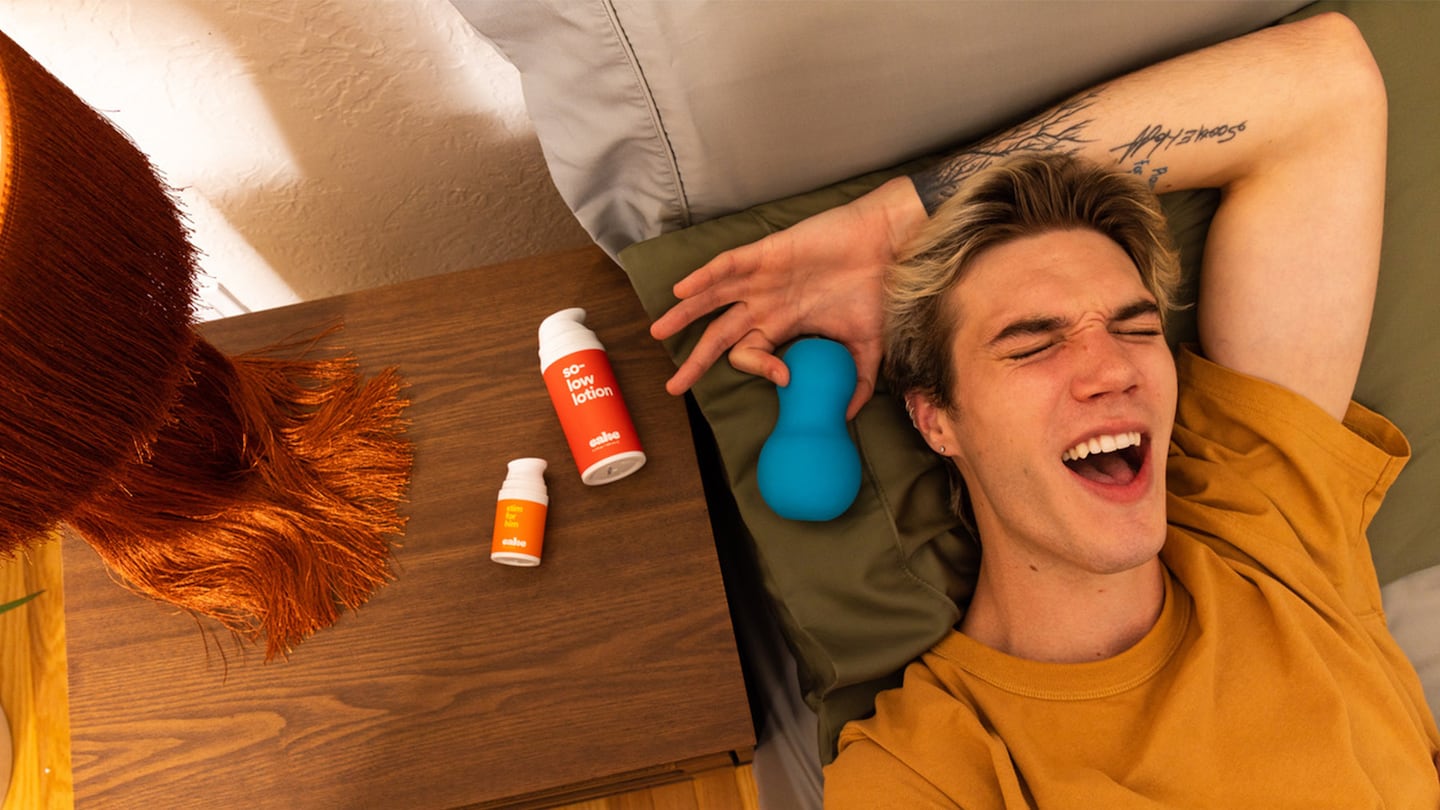
The Business of Fashion
Agenda-setting intelligence, analysis and advice for the global fashion community.

Agenda-setting intelligence, analysis and advice for the global fashion community.

When CJ Ramsdell, a self-proclaimed “average guy”, went shopping for lube in the early months of the pandemic, he couldn’t identify with any of the sexual wellness brands at his local Chicago pharmacy.
“The brands in the market right now are hypermasculine and hypersexualised,” he said, noting that he wasn’t “comfortable” introducing those products to his solo sex routine or one with a partner.
Ramsdell’s frustrations inspired him to team up with business partner Joe Russo to found Butter Wellness, a sexual wellness line which hopes to capture the attention of male-identifying consumers. The brand launched online in February with a toy and lubricant that retail for $89 and $12, respectively; its website is replete with direct language and an educational tone like “The prostate and perineum: what they are and why you should care.”
Butter is among a slew of direct-to-consumer brands hoping to reimagine sexual wellness for people who identify as men. Hims and Hers, a health and wellness company that launched in 2017, was among the first lines to offer products and prescriptions for erectile dysfunction alongside hair regrowth supplements for Millennials. But newer brands like Butter Wellness and Hello Cake, which launched in 2020, are prioritising sexual pleasure for male-identifying consumers with tingling gels and silicone rings for the penis. Pure for Men, meanwhile, sells fiber supplements designed to reduce the need for excess prep so people engaging in anal sex can be spontaneous.
ADVERTISEMENT
Until now, the men’s sexual wellness segment has been dominated by legacy players using a gender-normative lens, such as Trojan, KY and Durex, whose core competencies are condoms and lubricants. But the definition of masculinity is expanding, thanks in part to Gen-Z, a generation more fluid around gender identity than previous generations. As attitudes toward sex have changed in recent years, brands prioritising female pleasure like Maude and Dame came to market and wellness brands for men took notice.
“Most brands in the marketplace right now are just targeting the penis, but men have other erogenous zones,” said Ramsdell. “Innovating for different kinds of pleasure shows that the consumer is thinking about masculinity differently.”
As a former marketing associate, Ramsdell thought it was necessary for his brand to don the “for men” label as most wellness brands cater to female identifying customers.
“Men’s sexual wellness is still stigmatised and taboo,” he said. Targeting men explicitly, he added, “would make our core [target] consumer curious to try our selection.”
Butter Wellness launched the “Personal Massager,” a sexual device that externally stimulates the prostate, in February, a move Ramsdell says differentiates Butter Wellness from traditional players who have primarily launched sex accessories for the penis.
While legacy sexual wellness brands used traditional masculinity as a marketing tactic, sexual wellness brands today are ditching aggression, dominance and the objectification of women in their messaging.
“We’re a sex-care brand built around anatomy, not gender,” said Mitch Orkis, founder and chief marketing officer for Hello Cake. “This takes the guesswork out of shopping.”
Hello Cake is a gender-neutral sexual wellness brand that happens to cater to male-identifying consumers. Approximately 65 percent of the brand’s customers are men, said Orkis. The brand’s top-selling products are its cheekily named “Backside Play,” designed for anal sex. But Orkis explained that the sales performance of the product doesn’t necessarily mean that Hello Cake’s consumers identify as gay; rather, people across the sexuality spectrum are simply changing the way they have sex.
ADVERTISEMENT
Legacy brands, too, are changing. In 2018, Trojan introduced the “New Trojan Man,” a sex-positive figure that rejects labels and stereotypes. The brand’s advertisements now specifically include men who have sex with men.
While Gwyneth Paltrow and her site Goop are often credited with bringing the conversation around female pleasure into the mainstream, male sexual wellness brands lack an outspoken figure to educate the masses. Until now, experts say men have relied on ideals created by dated magazines like Playboy and pornography.
“Sexual health brands like Trojan have incredible consumer awareness, but the conversation is still condom-related,” said David Schneidman, a senior director at Alvarez & Marsal’s consumer and retail group. “Brands today need to focus on storytelling and awareness, and that will pave the path to scalability.”
Hims and Hers launched a blog called “Savoir Faire,” answering questions like “Does CBD make you last longer in bed?” Butter Wellness has launched a free sex education newsletter for its customers; Hello Cake, meanwhile, has colour-coded its product assortment based on areas of the body its products are designed for.
While the direct-to-consumer boom was instrumental in enabling shoppers to try new sex brands in the privacy of their homes, a robust brick-and-mortar strategy will ensure their futures.
“Sex isn’t often planned, so having strategic retail partners can really set you apart,” said Orkis. “We perform really well in what I call ‘sex deserts’ or really conservative states without a sex shop around the corner.”
Just as Sephora, Ulta Beauty and Target were quick to pick up lines like Dame and The Honey Pot, retailers are increasingly open to male-oriented brands which offer a differentiated product assortment, said Schneidman.
“Retailers have to think about shelf productivity,” he said. “Adding condoms to a shelf that already has a million condom brands isn’t as incremental to the category as adding cleansing wipes and other accessories.”
ADVERTISEMENT
Hello Cake counts Target, Walmart and CVS as retailers and has partnered with GoPuff, an online delivery company; investors have also come calling; the line has raised approximately $16 million to date. In August, Butter Wellness will collaborate with Contact Sports, a luxury sex shop in New York’s Soho neighbourhood, for an in-store pop-up event.
“It all comes down to brick-and-mortar acceptance and want,” said Schneidman. “Once we reach mass acceptance in the public, we’ll start to see more and more of these brands on the shelves.”
An array of emerging brands are attempting to glamourise and destigmatise everything from periods to hot flashes.
The segment is meant to be beauty’s next holy grail, but nailing the experience hasn’t been easy.

Yola Mzizi is the Editorial Apprentice at The Business of Fashion (BoF). She is based in New York and provides operational support to the New York team and writes features for BoF and The Business of Beauty.
The Spanish beauty and fashion conglomerate’s smart acquisitions and diverse portfolio could be a big draw for investors. Plus, Adidas is set to confirm its stellar first quarter.
How not to look tired? Make money.
In a rare video this week, the mega-singer responded to sceptics and gave the public a look at what her beauty founder personality might be.
Request your invitation to attend our annual gathering for leaders shaping the global beauty and wellness industry.